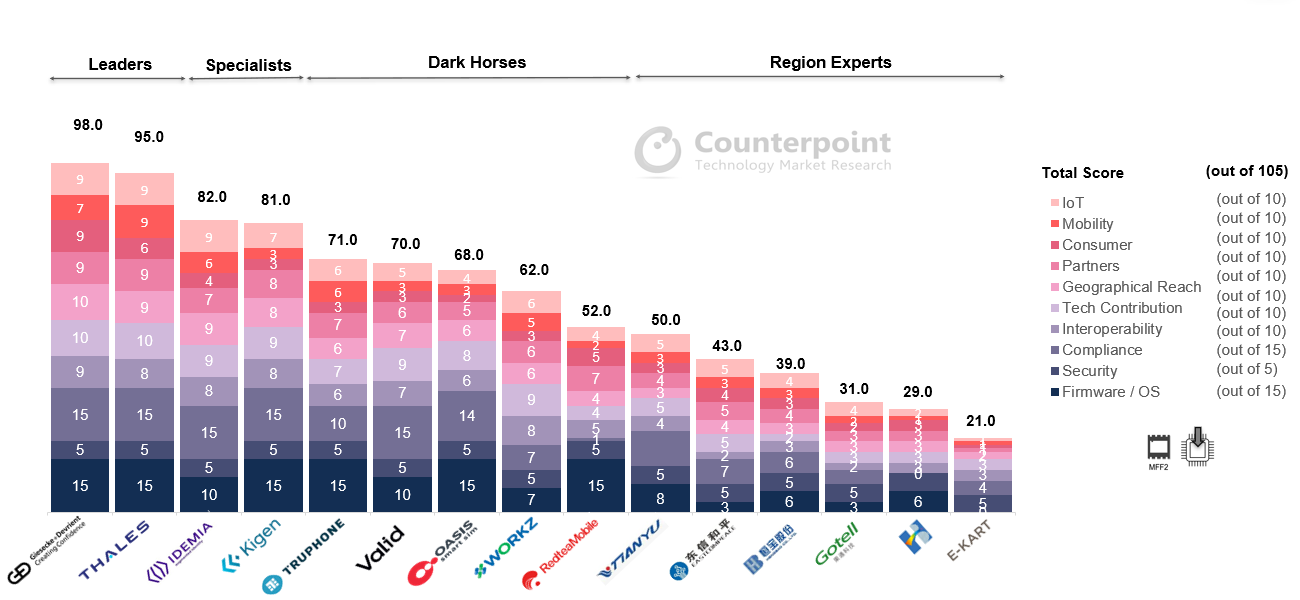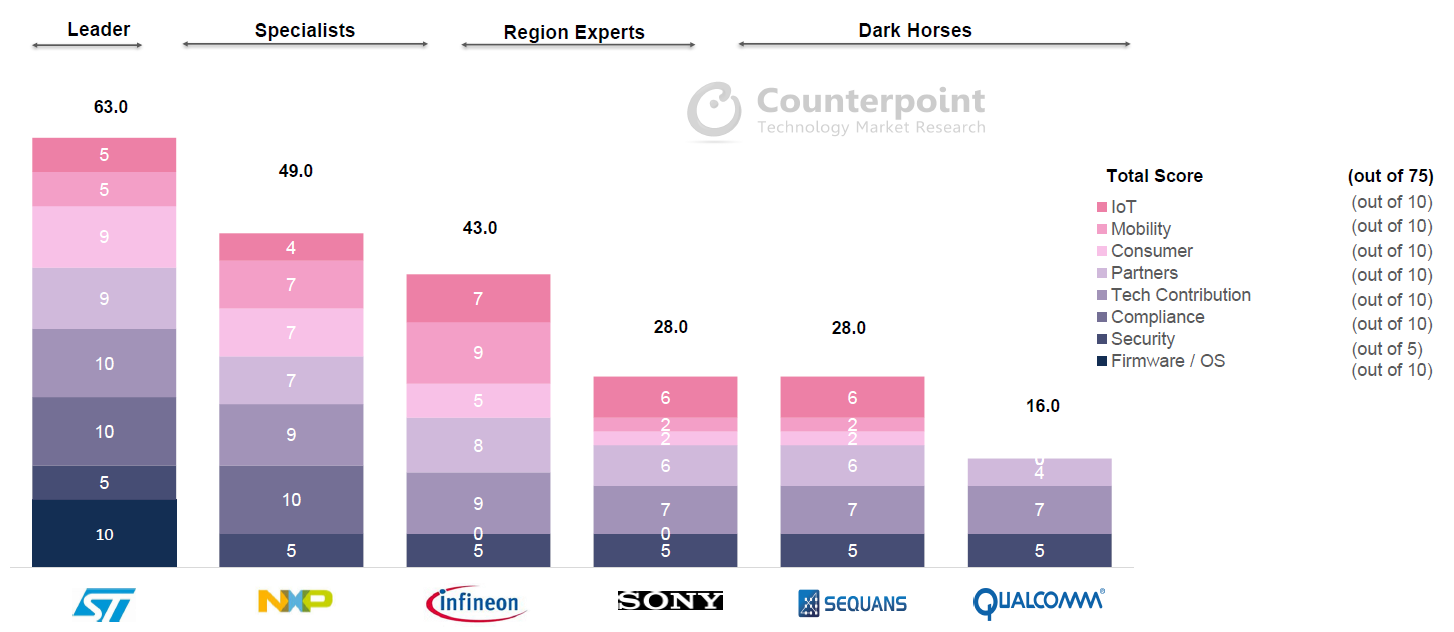Trends
G+D & Thales lead the global eSIM enablement landscape
G+D and Thales continue to lead the eSIM Enablement landscape, according to Counterpoint Research’s eSIM CORE (COmpetitive, Ranking & Evaluation) report. Integrated incumbents such as Giesecke+Devrient (G+D), Thales and IDEMIA along with relatively newer entrants like Kigen have led the pack and boast robust eSIM enablement capabilities, from having their own embedded secure elements and eUICC and iUICC operating systems to having developed offerings for consumer, automotive and IoT applications. This has helped them score well in terms of “completeness” in our evaluation.
More than six billion eSIM (eUICC- and iUICC-based) capable devices will be shipped cumulatively in the next five years. To better understand the positioning, platform capabilities and competence of various eSIM enablement players, Counterpoint has analyzed and evaluated key eSIM enablers, ranging from fully integrated companies to hardware-based eSIM vendors. The CORE (COmpetitive, Ranking & Evaluation) framework ranks different players in terms of completeness and capabilities such as Firmware, Compliance, Interoperability, Geographical Reach, partnerships and wins across the ecosystem.

Commenting on the competitive landscape, Research Vice President Neil Shah, highlighted, “G+D leads the Enablement CORE Scorecard. It leads in several important parameters such as OS, interoperability, security and has enabled the highest number of consumer eSIM capable devices including smartphones, smartwatches, and tablets. It enables more than half of all eSIM capable smartphones and tablets and more than two-thirds of all eSIM capable smartwatches. Its success in the consumer and IoT eSIM space makes it the deserved leader. Thales is a close second on the list, and it has excellent scores in parameters such as OS, interoperability and leads the chart in mobility enablement. Thales has built a strong consumer and IoT eSIM offering, enabling a range of consumer and IoT devices. It is also among the leaders in supporting many eSIM enabled industrial IoT applications.”
Mr. Shah further added, “The leaders are followed by specialists, IDEMIA and Kigen. IDEMIA has activated more than 3 million eSIMs. It has excellent scores in parameters such as interoperability, compliance and leads the scorecard in IoT enablement. Kigen is ranked fourth and is one of the fastest moving players in the eSIM enablement landscape. It leads the scoring in firmware, compliance and security. It delivered the industry’s first EAL5+ certified iSIM hardware in partnership with Sequans. Kigen has built strong partnerships across the value chain which has helped it enable at scale. Truphone, VALID and Oasis Smart SIM, Workz and RedTea Mobile are positioned as dark horses, well-positioned to consolidate their capabilities and challenge the leaders.”

Research Analyst Ankit Malhotra commented on changing role of hardware enablers in the ecosystem: “Semiconductor companies such as STMicroelectronics, NXP and Infineon have been the key suppliers of secure hardware eSIM chipsets, partnering with the eUICC OS vendors as above and in some cases having their own in-house integrated solutions. With the move to iUICC on the horizon, their role will become especially important.”
CT Bureau














You must be logged in to post a comment Login